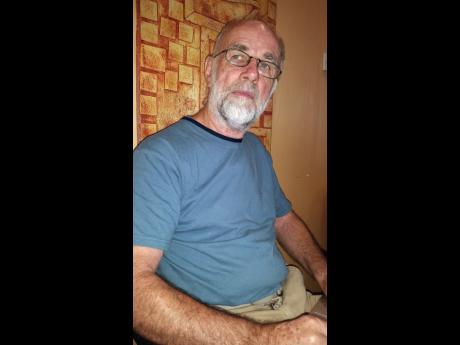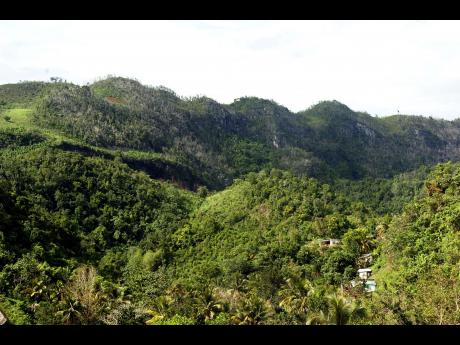Local communities take Cockpit Country fight to Kingston
Community-based representatives on Wednesday took the fight against bauxite mining in the Cockpit Country to Kingston, even as Cabinet mulls a decision on a boundary for the area.
A group of about 60 representatives, including maroons, journeyed to the capital to drop off letters urging Government to, as a start, rescind prospecting licence 578.
Their argument is that to do so would help to preserve the area, which accounts for some 40 per cent of the island's freshwater resources, while safeguarding their own livelihoods and quality of life.
"We are calling on the Ministry [of Water, Land, Environment, and Climate Change] and the Government to save these communities from the destructive consequences of bauxite mining by revoking the special exclusive prospecting license, number 578, and that there be no expansion of bauxite mining in western St Ann and the Cockpit Country," said one of the letters.
Letters were delivered to the Ministry of Science, Technology, Energy, and Mining; the Mines and Geology Division; the Ministry of Agriculture; and the National Environment and Planning Agency.
economic status
According to the stakeholders who were drawn from communities such as Madras, Gibraltar, Elderslie, Point, Cambridge, and Windsor their concerns with mining are "many and varied".
Among other things, they include that 90 per cent of the communities are comprised of farmers who stand to be displaced even as their "economic status, which is already bad," is likely to be affected.
Also, they say that bauxite mining "gives little or no jobs and has been done with no consideration for the community in that they [companies] mine extremely close to the road, leaving steep drops into pits".
Mining inside the biodiversity-rich Cockpit Country has long been contested by local stakeholders and environmental advocates who insist it ought to remain untouched, given its ecological significance and prospects for environmentally friendly industries, such as eco-tourism.
Still, Government has granted prospecting licenses even as a decision on a precise boundary for the area remains in question.
Colonel Oral Khan, chief technical director in the Ministry of Water, Land, Environment, and Climate Change, told The Gleaner recently that having arrived at a joint position, a group of government technocrats had submitted a boundary recommendation to Cabinet for a final decision.
There are currently six proposed boundaries on the table, including from the Cockpit Country Stakeholders Group (CCSG), one of whose representatives, Mike Schwartz of the Windsor Research Centre, took the delegation to Kingston.
fighting form
Of the six boundaries, the one advanced by the CCSG delineates the largest geographical area and would likely deal the hardest blow to bauxite mining.
Meanwhile, community representatives were in fighting form as they declared their intention to stave off mining.
"If the mining continues, there will be no future for the next generation. The Government stated that we should eat what we grow, but how can we grow anything when the land is destroyed?" said Linsford Hamilton from Madras.
"What they are heading for is to destroy our waterfalls, our rivers, our lakes because as soon as they reach over on the other side of the Cockpit Country, well, that is where the water will be cut off. And sooner or later, we will be like these people in Kingston, carrying water from abroad to drink and to store. We don't want that in St Ann. We need it to stop now," he added.
Young Accompong Maroon Tyshan Wright said he was prepared to do whatever it takes to stave off mining.
"We must preserve it [the Cockpit Country] by any means necessary. We must fight for it with the last breath in our body. Remember our ancestors did it for us... We are Maroons and we deserve it, we earned it," he said.



